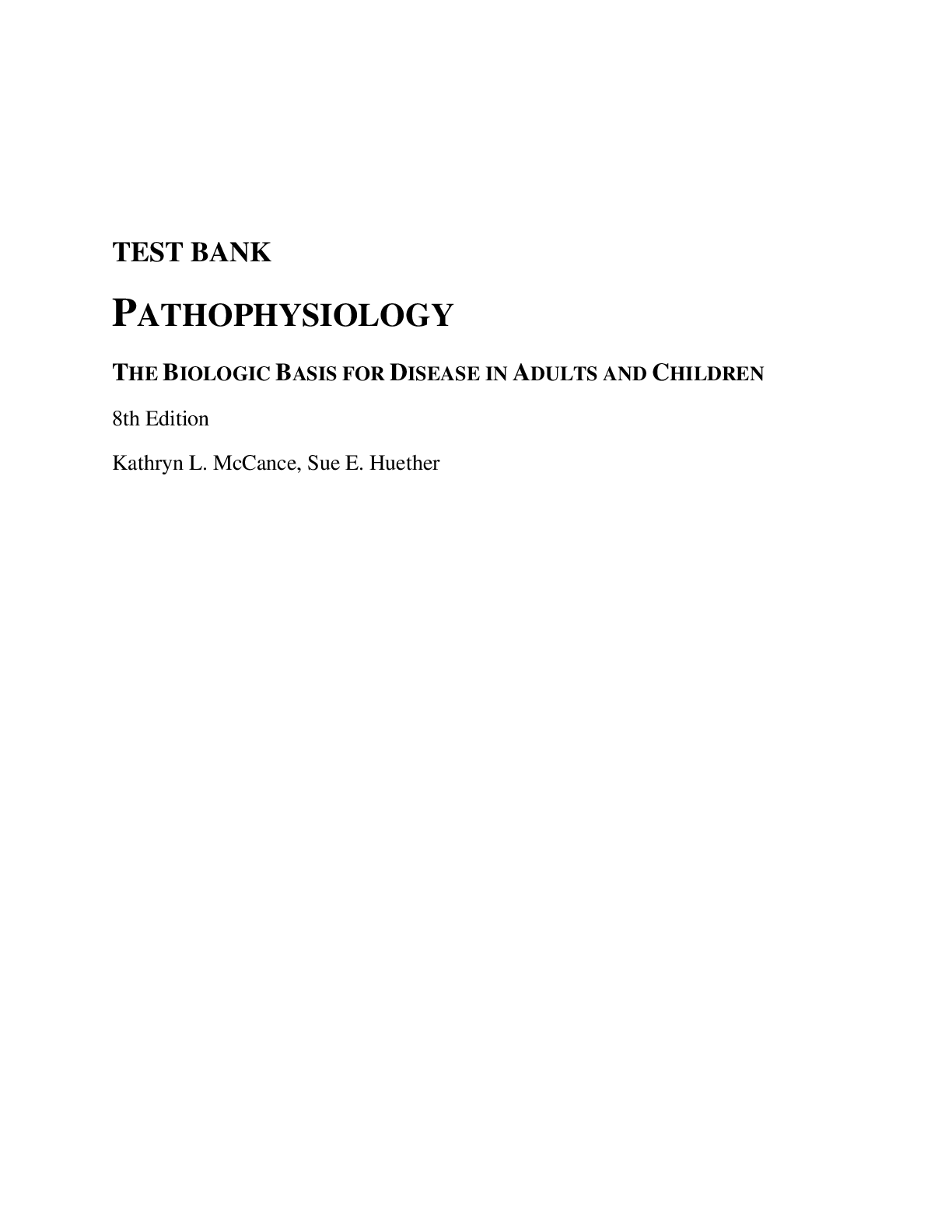*NURSING > TEST BANKS > health-assessment-final-exam-review-jarvis-6th-ed.graded-A-exam-updated-2021 (All)
health-assessment-final-exam-review-jarvis-6th-ed.graded-A-exam-updated-2021
Document Content and Description Below
A patient has been admitted to the hospital with vertebral fractures related to osteoporosis. She is in extreme pain. This type of pain would be classified as: • Deep somatic • Visceral ... • Cutaneous • Referred • A patient has had three pregnancies and two live births. The nurse would record this information as gravida , para , AB . • 3;2;1 • 2;2;1 • 3;2;0 • 3;3;1 • A patient is unable to differentiate between sharp and dull stimulation to both sides of her face. The nurse suspects: • Scleroderma • Bell’s palsy • Damage to the trigeminal nerve • Frostbite with resultant paresthesia to the cheeks • A patient states that the pain medication is "not working" and rates his postoperative pain at a 10 on a 1 to 10 scale. Which of these assessment findings indicates an acute pain response to poorly controlled pain? • Increased blood pressure and pulse • Confusion • Hyperventilation • Depression • A patient with a middle ear infection asks the nurse, "What does the middle ear do?" The nurse responds by telling the patient that the middle ear functions to: • Interpret sounds as they enter the ear • Conduct vibration of sound to the inner ear • Maintain balance • Increase amplitude of sound for the inner ear to function • A patient with lack of oxygen to his heart will have pain in his chest and possibly the shoulder, arms, or jaw. The nurse knows that the statement that best explains why this occurs is which of these? • The lack of oxygen in his heart has resulted in decreased amount of oxygen to the areas experiencing pain • There is a lesion in the dorsal root that is preventing the sensation from being transmitted normally • ` The sensory cortex does not have the ability to localize pain in the heart, so the pain is felt elsewhere • There is a problem with the sensory cortex and its ability to discriminate the location • A patient's laboratory data reveal an elevated thyroxine level. The nurse would proceed with an examination of the gland. • Adrenal • Parotid • Parathyroid • Thyroid • A woman states that 2 weeks ago she had a urinary tract infection that was treated with an antibiotic. As a part of the interview, the nurse should ask, "Have you noticed: • A change in your urination patterns? • Any changes in your desire for intercourse? • Any excessive vaginal bleeding? • Any unusual vaginal discharge or itching? • After completing an assessment of a 60-year-old man with a family history of colon cancer, the nurse discusses with him early detection measures for colon cancer. The nurse should mention the need for a(n): • Annual proctoscopy • Colonoscopy every 10 years • Fecal test for blood every 6 months • Digital rectal examinations every 2 years [Show More]
Last updated: 2 years ago
Preview 1 out of 12 pages

Buy this document to get the full access instantly
Instant Download Access after purchase
Buy NowInstant download
We Accept:

Reviews( 0 )
$13.00
Can't find what you want? Try our AI powered Search
Document information
Connected school, study & course
About the document
Uploaded On
Apr 08, 2021
Number of pages
12
Written in
Additional information
This document has been written for:
Uploaded
Apr 08, 2021
Downloads
0
Views
104







.png)

_removed.png)
















